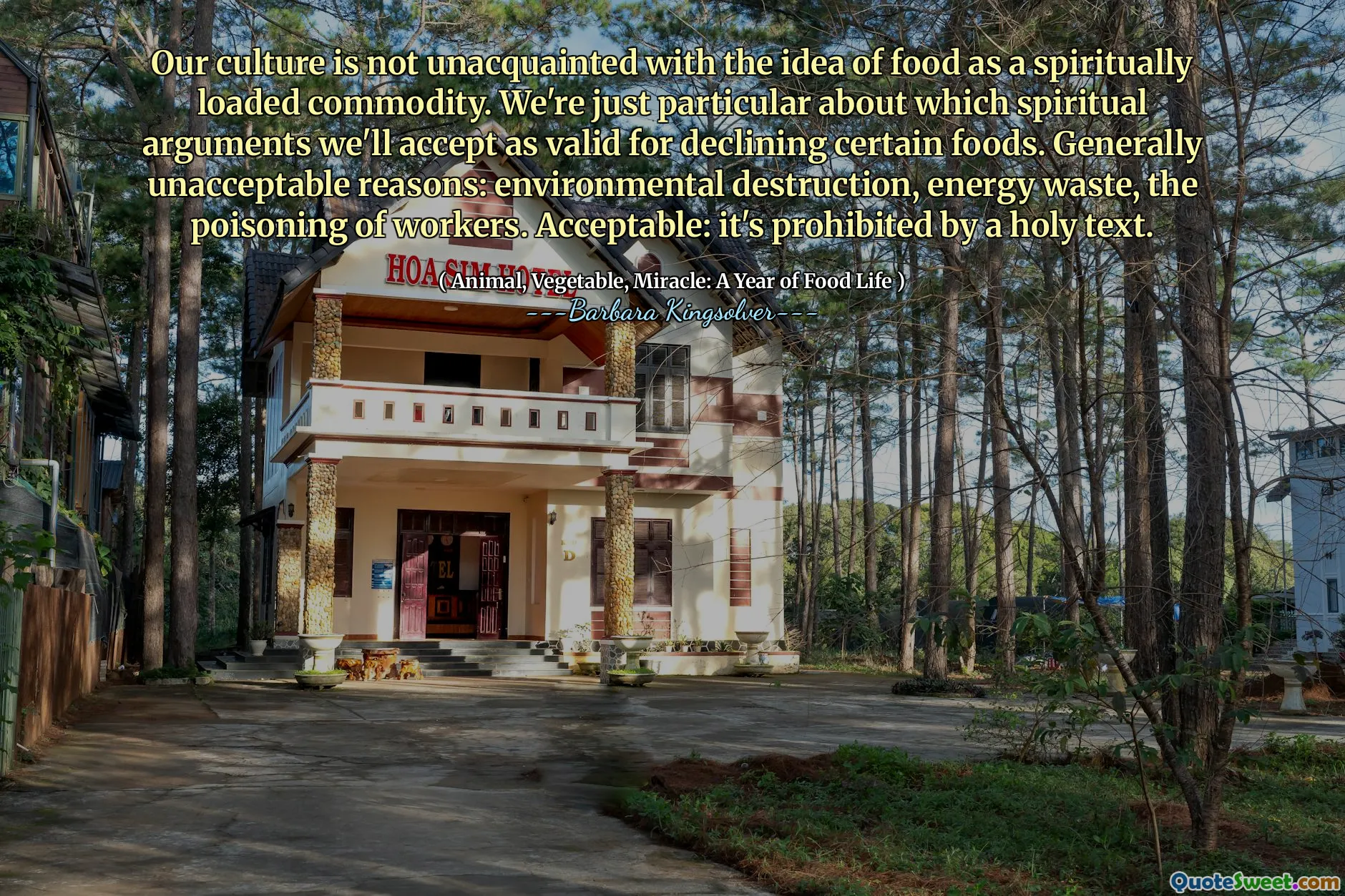
Our culture is not unacquainted with the idea of food as a spiritually loaded commodity. We're just particular about which spiritual arguments we'll accept as valid for declining certain foods. Generally unacceptable reasons: environmental destruction, energy waste, the poisoning of workers. Acceptable: it's prohibited by a holy text.
In examining our cultural relationship with food, it’s clear that we view it not only as sustenance but also as a vessel for spiritual significance. However, there are specific reasons that are accepted or rejected when it comes to abstaining from certain foods. While concerns like environmental impact or worker exploitation are often dismissed, arguments rooted in religious texts find greater acceptance among individuals.
This highlights a selective approach to spirituality in food choices, where personal beliefs take precedence over broader ethical considerations. The acceptance of religious prohibitions contrasts sharply with the rejection of secular moral arguments, suggesting that our cultural narrative around food is deeply intertwined with established beliefs rather than an all-encompassing ethical framework.











